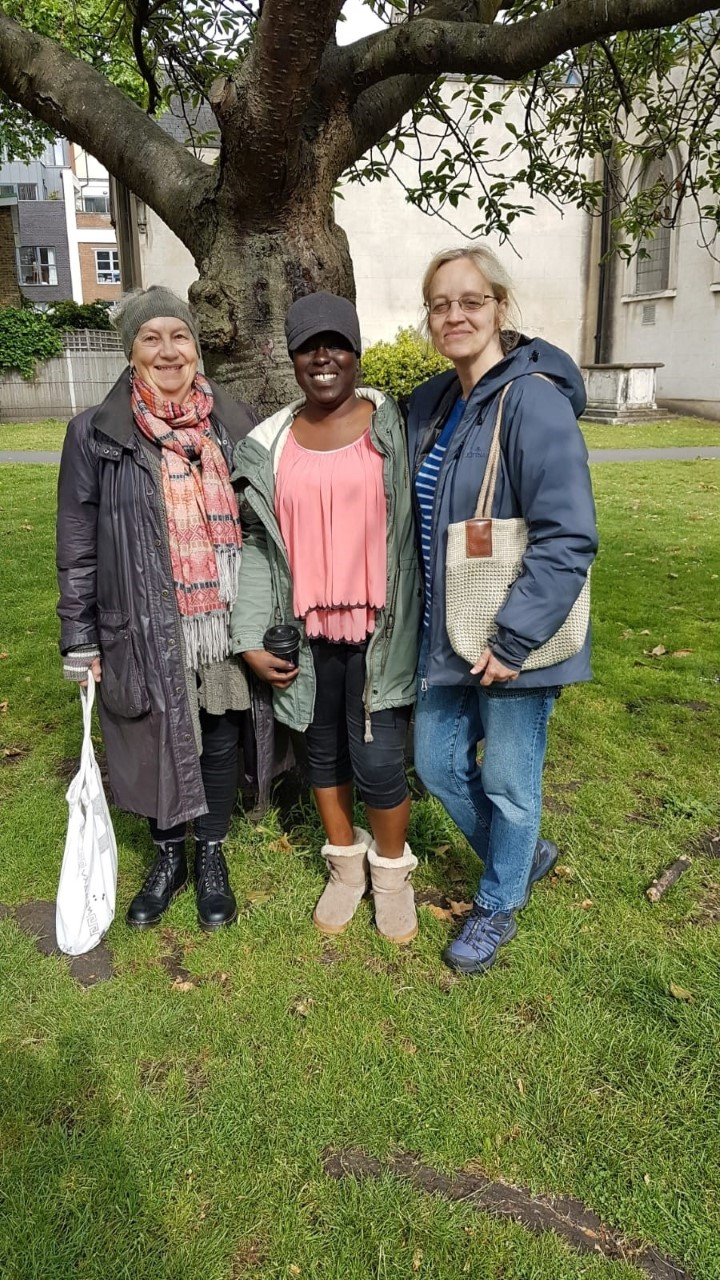
Interview with Housing Justice
As part of the TGIUK series on Belonging, meet an organisation that works diligently to find accommodation for refugees and migrants, matching volunteer hosts with those in need.
Thanks for agreeing to be interviewed by TogetherintheUK. Every month, we look at different themes that impact on migrants and this month we are looking at Belonging and so we thought it a good idea to talk to an organisation that helps people find accommodation.
As I understand it, you are a Christian organisation which works to place asylum seekers and refugees in the spare rooms of volunteer hosts.
First of all, we would like to know a bit about you:
Tell us a bit about what you do and what your goals are?
I co-ordinate the hosting programme at Housing Justice, in which volunteer hosts accommodate destitute asylum seekers and forced migrants who are awaiting a decision on their immigration from the Home Office.
We would like to know a bit more about what makes for a good relationship between the host and guest?
While we always try to match hosts and guests based on the information we have on them, chemistry isn’t always predictable; I’ve matched some hosts and guests where I wondered if they would get on (based on things like age difference, cultural background, interests etc.), and they’ve developed amazing friendships which continue even when the guest has moved on, and others which seemed like a perfect match “on paper” haven’t really clicked. Our strongest request of hosts and guests is that they stay in touch and are open about any issues from day one – minor problems can usually be resolved early on, but grow into much more complex situations if they are not nipped in the bud.
What are the small things that both guests and hosts can do to ensure that everyone feels comfortable and at home?
Speak openly and honestly, either with each other or Housing Justice, from the outset. If hosts or guests are struggling with anything (this could be inside the home or outside, from health issues to problems with other people or finances), we can usually find or point towards support; suffering in silence is definitely not the best approach! Every relationship is unique and the needs and issues people have are individual, so we would always encourage asking questions throughout the placement to ensure needs can be met as much as possible.
What are the challenges people face in sharing their home?
These can be as varied as anyone sharing a home in another context (from leaving the lid off the toothpaste to misunderstandings about who’s cooking to leaving lights on), but an added feature of this relationship is that guests are sometimes working through very challenging and traumatic experiences. It’s not unusual for guests’ behaviour to change slightly after a month to six weeks – usually in the form of withdrawing and/or sleep problems, which we think is due to the fact that people have begun to feel safe and secure by then, having spent a lot of time in daily “survival mode” and having to ignore the trauma they have been through while they manage day to day. It usually takes a couple of weeks for guests to settle in and begin to feel comfortable, as they have usually been living a very precarious and unsettling existence prior to being hosted. We always try to prepare hosts for this, as guests do usually come through this period with support.
What can make it fun?
Trying new things (such as cuisine), going to museums, shows, galleries, parks, playing board games, watching TV together…in short, anything that makes any house sharing situation fun! Some of our guests have learned to swim while being hosted, seen a panto for the first time, or been on a canal boat for the first time with their hosts.
Your website says, you are working to enable people to access work and services? What are your top tips for migrants on getting into work?
While people are awaiting a decision from the Home Office, they are forbidden from doing paid work. However, they can take up volunteering, which we really recommend and encourage – it helps increase their self-confidence, nudges them out of their comfort zone, enables them to meet new people, improves their health and English skills and offers them an opportunity to help other people, which they are often desperate to do. In addition, it provides valuable experience for when they are able to work, means they can provide references and also explain what they have been doing with their time to potential employers.
What are your top tips on accessing and working with services?
Don’t be afraid to ask! We have been delighted with the amount of support services and other volunteer organisations have provided for our guests, to cookery classes, retreats, befriending, English classes, medical services and more. We would always recommend checking out potential supporters before working with them, though; our guests are in a very vulnerable position and open to exploitation, and there are unscrupulous people out there looking to take advantage – there are also others who mean well but don’t really consider the needs of people in our guests’ situations before diving in with good intentions but lack preparation.
What is the most rewarding part of your work?
Easy! When guests are granted leave to remain, especially if they have been through several applications, appeals, refusals and the rest – there’s always a cheer in the office when I let colleagues know someone has made it through!
The second part is definitely the people; hosts and guests are a real inspiration and encouragement, and it’s a delight to see the relationships take shape!
If anyone reading this, would like to offer a room, what is their next step?
Get in touch, either through the Housing Justice website, or by emailing hosting@housingjustice.org.uk or mandb@housingjustice.org.uk






